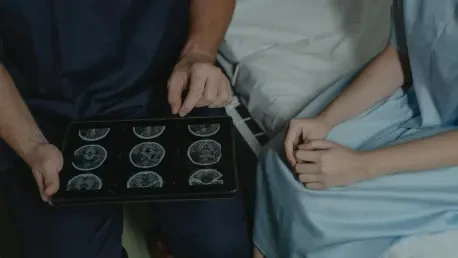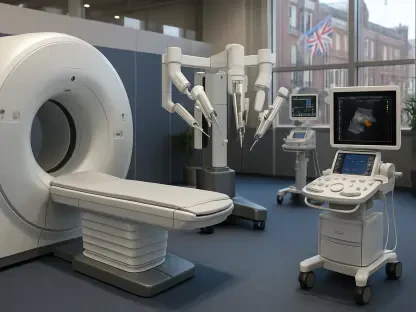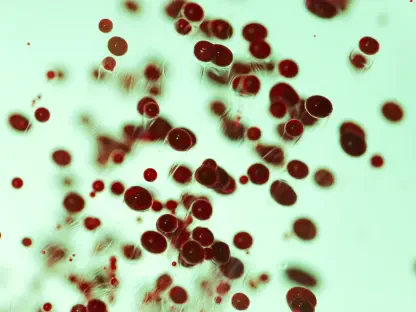The University of Cincinnati Gardner Neuroscience Institute (UCGNI) has unveiled a significant change in its leadership with the appointment of Dr. Brett Kissela as the new director. This development is more than just a change of guard; it represents a strategic pivot toward advancing neurological research and patient care within the institute. Dr. Kissela’s appointment is anticipated to be a transformative move for UCGNI, leveraging his expertise and leadership skills to foster innovation and excellence in neurology. His expansive career, particularly his focus on stroke research, positions him uniquely to direct UCGNI’s future endeavors.
Dr. Brett Kissela’s Distinguished Career and Expertise
Academic and Professional Journey
Dr. Brett Kissela’s career in neurology is marked by outstanding contributions and leadership within the field. With over two decades of service at the University of Cincinnati, he has built a reputation as a nationally acknowledged authority on stroke research. His academic tenure includes holding esteemed positions such as chair of the Department of Neurology and Rehabilitation Medicine, executive vice dean, and senior associate dean of clinical research at the UC College of Medicine. Furthermore, Kissela has served as chief of research services for UC Health, showcasing a breadth of experience in leadership roles that have significantly influenced the department’s direction.
His academic credentials are equally impressive. Dr. Kissela is the Albert Barnes Voorheis endowed professor, a testament to his dedication to academic excellence. His journey through the halls of academia began with a medical degree from Washington University School of Medicine, followed by a residency at the University of Michigan and a fellowship in cerebrovascular disease at the University of Cincinnati. Additionally, he holds a master’s degree in epidemiology from UC, providing a solid foundation for his research pursuits into stroke outcomes and their association with comorbidities such as diabetes and psychiatric disorders.
Leadership Roles and Achievements
Dr. Kissela’s leadership abilities have not only reshaped the Department of Neurology and Rehabilitation Medicine but have also stimulated its growth to a national level of recognition. His strategic vision has helped the department set itself apart as a leader in neuroscience education, research, and clinical care. Under his guidance, the department has reached new heights, achieving various milestones and attracting talented physician-scientists committed to interdisciplinary care models and robust academic programs. These accomplishments underline his capacity to build an academic culture that values both research and clinical excellence.
His leadership extends beyond departmental boundaries; he has been a driving force in initiatives that integrate research with clinical practice. This approach is critical in fostering a seamless transition between laboratory discoveries and patient care innovations, ultimately benefiting the individuals who rely on UCGNI’s services. Furthermore, Dr. Kissela’s collaborative approach in fostering partnerships with different medical disciplines is a testament to his understanding of the complexities within neurological care and his capability to enhance patient outcomes through cooperative efforts.
New Role and Vision at UCGNI
Goals for Research and Patient Care
In his new capacity as the director of UCGNI, Dr. Kissela is set to lead the institute toward achieving exceptional advancements in clinical research and patient care. His appointment underscores a steadfast dedication to translational research, emphasizing the importance of converting scientific discoveries into effective treatments. UCGNI intends to bolster its research initiatives by expanding clinical research capacities under his guidance. This transition marks an opportunity for Kissela to invest his time and efforts into advancing essential clinical research, an area he is passionately committed to.
One of his primary aims involves fostering patient-centered healthcare innovation. By prioritizing patient outcomes as a central aspect of research, UCGNI can develop treatment modalities that reflect real-world clinical needs. This vision gains further support from Dr. Gregory C. Postel, dean of the College of Medicine, who asserts that Kissela’s leadership will leverage the institute’s potential. Dr. Postel envisions Kissela’s expertise materializing into groundbreaking discoveries and improved patient outcomes, setting UCGNI on a path of continued growth and significance in the medical community.
Enhancing Clinical and Translational Research
Dr. Kissela has consistently emphasized the role of translational research in improving neurological care. Known for transforming research findings into actionable healthcare solutions, he is keen on further developing this synergy at UCGNI. His role as executive vice dean and senior associate dean of clinical research underscores his commitment to fostering a research environment where scientific inquiry can translate directly into tangible health benefits. His longstanding involvement in NIH-funded research programs, such as the Center for Clinical and Translational Science and Training (CCTST), further attests to his commitment to this vision.
Under his leadership, the institute is expected to advance interdisciplinary methodologies combining various medical perspectives to enhance their efficacy. Dr. Kissela’s approach promotes a research culture where breakthroughs in one area can inform and benefit other domains of neurological research. This integration effectively ensures the continuous progression of UCGNI’s capabilities as a leading neuroscience and rehabilitation center, priming it to set new standards in the medical field.
An Ongoing Legacy and Transitional Leadership
Contributions of Dr. Joseph Broderick
Dr. Kissela’s appointment follows the tenure of Dr. Joseph Broderick, a distinguished stroke expert whose foundational contributions have played a crucial role in UCGNI’s prominence. Dr. Broderick’s leadership laid the groundwork for the institute’s growth, and his transition to senior adviser to UCGNI signifies a moment of continuity and change. Despite stepping down as director, Dr. Broderick will continue to contribute his expertise, ensuring that the initiatives and programs he established continue to thrive. His involvement in efforts like the StrokeNet National Coordinating Center and the establishment of an Alzheimer’s Disease Research Center further reinforces his ongoing legacy.
Dr. Broderick’s visionary approach reshaped UCGNI into a leading institution for stroke research, gaining national acknowledgment for its contributions to the understanding and treatment of this condition. His initiatives have paved the way for the emerging academic environment that Dr. Kissela is now poised to enhance. The cumulative efforts of these leaders reflect UCGNI’s robust foundation in neurological care and suggest an exciting trajectory for the future under Dr. Kissela’s stewardship.
Sustaining and Building Momentum
As UCGNI transitions to new leadership, its trajectory remains focused on sustaining the momentum built by its faculty and leadership over the years. Dr. Reena Shah’s appointment as interim chair of the Department of Neurology and Rehabilitation Medicine maintains the continuity required to uphold the department’s achievements. The institute is also preparing for a nationwide search to appoint a permanent chair, a step that illustrates a commitment to identifying leadership that aligns with its goals.
This strategic progression underlines the importance of maintaining a seamless transition of leadership roles while executing plans for further departmental growth. By ensuring strong leadership at every level, UCGNI is well-positioned to spearhead innovations in neurological research and patient care. The ability to adapt and evolve during such transitions speaks to the resilience and forward-thinking nature of the institute, maintaining its esteemed position as a leader in the field.
Moving Forward: Strategic Developments and Future Prospects
The University of Cincinnati Gardner Neuroscience Institute (UCGNI) has marked a crucial evolution in its leadership by appointing Dr. Brett Kissela as its new director. This shift signifies more than merely a change in personnel—it’s a strategic move aimed at propelling neurological research and enhancing patient care within the institute. Dr. Kissela’s role is expected to be transformative for UCGNI, drawing on his deep knowledge and leadership abilities to drive innovation and achieve excellence in the realm of neurology. His extensive career history, notably his significant focus on stroke research, uniquely equips him to guide the institute’s future initiatives. With Dr. Kissela at the helm, UCGNI is poised for a new era where pioneering research meets cutting-edge patient care, ultimately reinforcing its mission to advance understanding and treatment of neurological disorders. This progressive direction highlights the institute’s commitment to fostering groundbreaking developments under his guidance.









